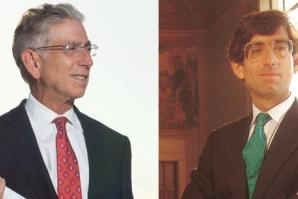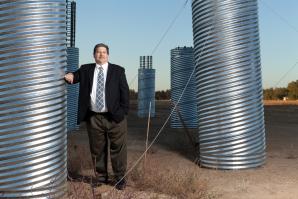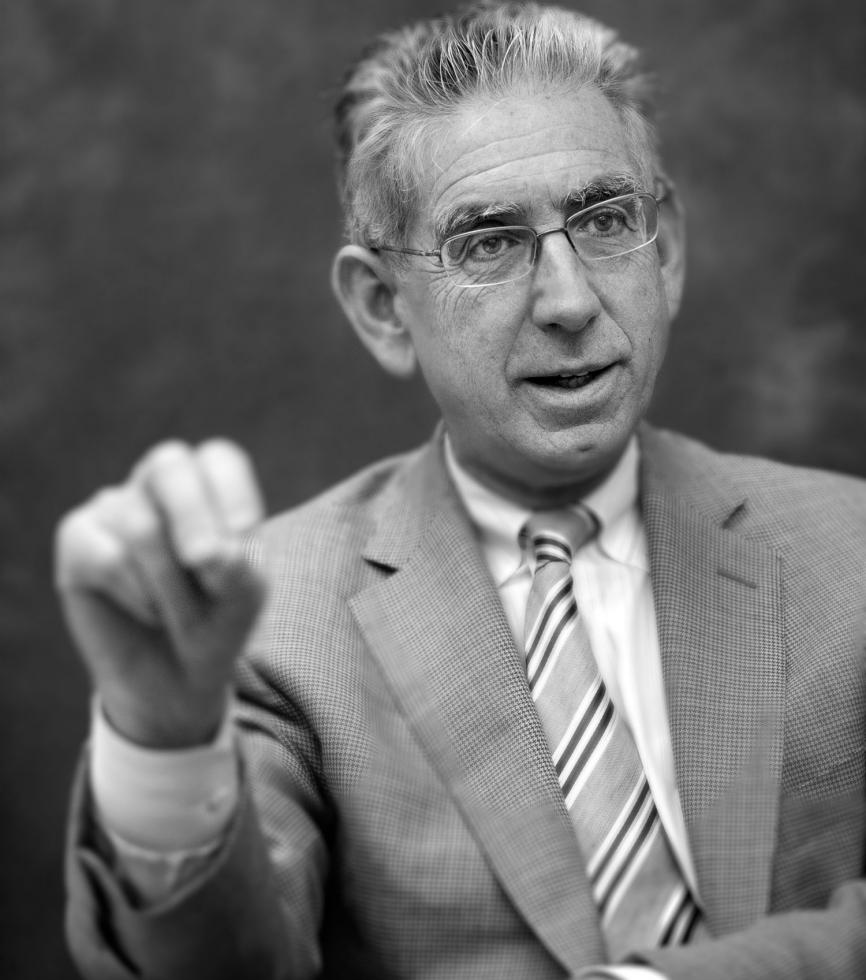Former California State Treasurer Phil Angelides was tapped in 2009 to chair the Financial Crisis Inquiry Commission, a 10-member commission that Congress tasked with determining the causes of the Great Recession. After reviewing millions of pages of documents, interviewing more than 700 people and holding 19 days of hearings, the commission issued its findings in January. We sat down with Angelides in his Sacramento office recently to discuss those findings.
Comstock’s: The report details
shocking systemic failures in our financial system. Even so, your
findings were not unanimous. Why was that?
Angelides: Obviously we all came in with a certain level
of preconception, like most Americans. Everyone knew something
about this crisis. But it was very much a journey of revelations.
I came in thinking I had a pretty good grasp and knowledge of the
financial system. But as we got into our inquiry, we were
fascinated, surprised, shocked and appalled by what we saw and,
for me personally, just the sheer level of gambling that was
happening on Wall Street. I had, as I think many people do, this
notion that Wall Street was there to serve the real economy and
provide capital to grow businesses and jobs, and I found
something quite different. Although our report was not unanimous
— there were five Democrats and one Independent who signed onto
the report, with two separate dissents by the Republicans — I can
at least speak for the commission as a whole in that our
conclusions are based in facts.
Comstock’s: You’ve stated that
your job was not to be prosecutors, but to find out what was
going on and to present the evidence and facts the way you saw
them. Still, a lot of folks have questioned why we aren’t seeing
the people responsible for this in jail.
Angelides: This is the most frequently asked question I
get. While we were not set up as prosecutors, we did have a legal
obligation, given to us by Congress, that if we found potential
violations of law, we were to refer that information to the
attorney general of the U.S. and the appropriate state officials.
We fulfilled those responsibilities. Obviously we’re not at
liberty to talk about specific cases, but we did in fact forward
material to the appropriate law enforcement authorities.
Comstock’s: Do you anticipate
the Department of Justice prosecuting any of these cases?
Angelides: It’s my hope that our investigation is viewed
as a start, not an end, and the prosecutors follow up. I think
there are two critically important issues here. One is that
people need to know the justice system has only one set of rules,
not one set for people of enormous wealth and power and another
for everyone else. I think this notion of fairness is vitally
important. But I think deterrence is also important. I’ve looked
at a number of the civil settlements that have come out of this,
where defendants have made tens of millions, or even billions of
dollars, both individuals and firms. They settle for pennies on
the dollar and admit no wrongdoing. Heck, if a guy robbed a
7-Eleven, stole $500 and the next day could settle for $25 and no
admission of wrongdoing, he’ll be back doing it the next night.
So I do think deterrence is a serious matter. As for cases being
pursued, look at it this way. The full implosion of the crisis
came at the end of 2008. In 2009, the country is still shaking
and wobbling, and the real question is, “Are we going to plunge
into a Great Depression?” It’s not until 2010 that the real
investigations began. We’re still just learning each and every
day about what happened here. So my hope is the investigation
continues and cases are pursued.
Comstock’s: We saw a fairly
strong resistance from some members of Congress against greater
regulation of our financial system. In that regard, was Congress
trying to kill the reforms that folks like you say are so
desperately needed?
Angelides: The House of Representatives sure tried. They
and their political allies on Wall Street made a very deliberate
effort to do it; there’s no question about it. In fact, very
little has changed since our financial world came apart in 2008.
Wall Street firms are still making an enormous amount of money
through risky trading activities. There’s a greater concentration
in power and assets in fewer banks than ever before. I mean, if
“too big to fail” was a problem before, it’s an even bigger
problem now. Bloomberg recently came out with some new numbers
that showed that the biggest 10 banks control 77 percent of the
banking assets in this country now. So if one of them gets in
trouble, it’s hard to imagine the U.S. government won’t rescue
them.
Comstock’s: You mentioned “too
big to fail,” which we all heard as a rationale for the Troubled
Asset Relief Program, the taxpayer dollars Washington used to
prop up the financial system. A lot of people think TARP was just
a bill of goods. Bottom line: Was the federal bailout
necessary?
Angelides: We tried to focus on a different question:
How in the heck did it come to be that in fall of 2008 the only
two choices this country appeared to have was either to allow the
financial system to collapse or to inject it with trillions of
dollars? I think that’s the question that’s central to this
country. Based on every document I read, the witnesses I heard,
the data I looked at, it’s pretty clear that when we got to
September of 2008, the financial system was in free fall, and we
had no alternative but to wade in and support the system. Now, it
could have been done in different ways. It could have been done
where we got much more in the way of change in behavior from
these financial institutions for the price of assistance. I’ll
give you one example: When the government came in and rescued
Fannie Mae and Freddie Mac, they imposed a condition that they
could no longer lobby Congress, given that they were now
essentially a taxpayer-supported institution. But almost no
constraints were put on the big banks. They got the cheap money
with almost no strings attached. I think that was problematic.
Comstock’s: Could this happen
again?
Angelides: Yes. In the wake of Great Depression, we
adopted reforms that did pretty well for us for several decades.
But they came out of a period of great pain, and they also came
out of a period where Wall Street itself was brought low. In this
instance, because of the enormous support from the American
taxpayer, Wall Street may have skipped a few beats for a few
months but pretty soon they were back at it. Profits by 2009 were
triple what they were in 2006, the year before the meltdown
began, and compensation at big publicly traded firms hit a record
high in 2010 of $135 billion. We’ve also seen the House try to
cut funding to the Securities and Exchange Commission and the
Commodity Futures Trading Commission. The SEC’s budget is $1.2
billion, but the House GOP leadership tried to cut it to $1
billion. The SEC this year will bring in about $1.8 million in
fines and fees, so it’s not about the budget. It was about
constraining the ability of regulators, who are already
outmatched by Wall Street, from doing their jobs. It’s the same
with the CFTC, which is charged with the herculean task of
regulating the over-the-counter derivatives market, which at one
point was about $600 trillion in size and was without any
regulation or transparency. The Dodd-Frank reform bill takes this
dark market and brings it on the public exchanges. It’s going to
be a very big task, but the House Republicans tried to cut their
budget by a third, which would have made it impossible for them
to do their work. So I definitely think the risk is there. In
some respects the economy is so slow right now. It’s like a boat
that’s not seaworthy. I’m afraid when this thing starts sailing
again that we’ll be very prone to the same risks we saw in the
run-up to the crisis. [Note: The SEC and CFTC have since received
slight increases in their 2011 operating budgets.]
Comstock’s: What does this
administration need to do to help prevent that from
happening?
Angelides: What the president needs to do is to more
forcefully advocate the case for reform. He needs to lay out for
the American people the risks that are still there and to really
show the American people his commitment to making fundamental
changes in the financial system. The opponents of reform have
done an extraordinary job of confusing people about the facts.
There is no question that by the time President Obama took office
in 2008, the damage had been done and the economy was in free
fall. But it does fall on him to make the case for reform, and I
am hoping he does that in the next two years.
Comstock’s: You’ve mentioned
that so many of the worst offenders have dodged their culpability
in this situation. Did anyone step forward to be accountable?
Angelides: Yes, Ben Bernanke. Most of the people we
interviewed would not accept any correlation between the risks
they took, the recklessness they engaged in and what happened to
our economy. But I found Bernanke was one of the few people
willing to be introspective and reflective. For example, he
agreed with our assessment that the Federal Reserve’s
unwillingness to control out-of-control mortgage lending was a
total failure. But he also pointed out to us that the damage was
so severe that by September of 2008, we were probably within a
week or two of 12 of the 13 major financial institutions
collapsing. So no one should ever forget how the system had come
completely apart, and how the recklessness of Wall Street got us
there. I hope those lessons are never forgotten.
Recommended For You

Where Is Phil Angelides Now?
It's been an eventful 25 years for this developer
Then:
The year was 1989. Comstock’s was in its infancy. Hometown boy Phil Angelides was featured in November, standing in the center of the historic Southern Pacific railroad station.

Love Thy Neighbor
Sacramentans love infill development – until it actually happens
Infill development is promoted as an antidote to suburban sprawl and environmental degradation and is championed by city planners, environmentalists and policy makers of all persuasions. But as local developers Paul Petrovich and Phil Angelides have long known, infill leads to fights over allegations of increased traffic or environmental hazards.



